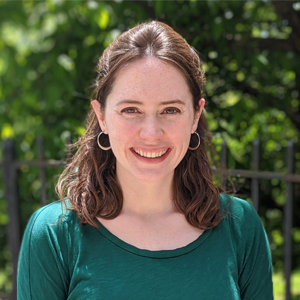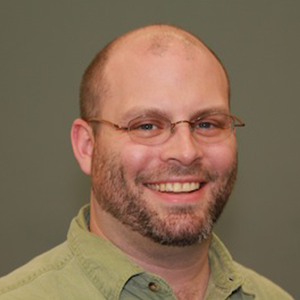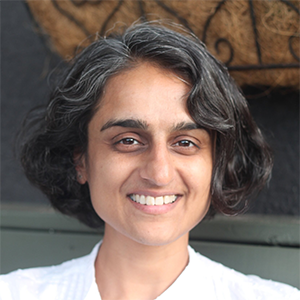Nice work if you can get it
In academia, the majority of research is done by a combination of principal investigators, who generally aren’t in the lab anymore, and people in the trainee stage of their careers, specifically graduate students and postdoctoral researchers. Once your training is over and you are very good at research, academia seems to say you should either become a PI or skedaddle on to some other career outside the academy.
Certainly that’s good for some people. Some want to be PIs, and they continue to pursue that goal. Some want to go do any number of other awesome things with their lives, and they go do that.
But what if you like academic research but don’t want to be a PI? After a postdoc, do you have to either be a PI or leave academia? Are all the specific and detailed laboratory skills you’ve gained over the past decade or so useless now?
In other words, is there a route for staying in academia as neither a PI nor a forever-roving postdoc?
Yes! One option is to become a staff scientist, senior scientist, associate researcher or, in some cases, research professor. Institutions have all different names for these jobs, but in general they are long-term jobs for people who are neither PIs who run their own labs nor time-limited postdocs. The roles can vary from one institution to another, even from one lab to another, but in general these jobs are research or technically focused.
These workers play an important role in research (and it arguably should be an even bigger role). These jobs benefit the scientists who want stable bench careers and benefit labs and academia as a whole.

I spoke with Laura Long, a neuroscientist at the Simons Foundation, about these jobs. She saw different sides of this type of job throughout her career. After earning her bachelor's degree, she worked at the National Institutes of Health, where there were several staff scientists. “They made the whole lab run better. They had institutional knowledge and still had the bench expertise to help people troubleshoot. They really added a lot to the lab and to my own ability to succeed, while having a genuine career that wasn’t just ‘Oh, you can’t get a PI job.’”
On the other hand, her choice to leave academia after getting her Ph.D. was largely due to the lack of availability of these jobs. She knew she didn’t want to be a PI. “If there were the alternative of continuing to do science but not trying to be a professor, that might have been appealing. But since there wasn’t, I looked outside academia,” she said.
These jobs do exist in academia, though they are not incredibly common, are hard to find, and often are not advertised, for reasons I’ll get into later.
While these jobs aren't easy to find, they fill two serious needs in academia: First, they prevent the problem of people leaving as soon as they’re competent. Since so much research in academia is done by students and postdocs (both trainees technically), it improves research quality when you have more long-term bench scientists around. It also minimizes the knowledge that is lost due to the turnover. By knowing little things (like where a reagent is kept) and bigger things (like the history of science conducted in the lab and department), long-term lab members and staff provide continuity and improve efficiency.
Second, on a personal level, it provides financial stability (including benefits such as a retirement plan, which is often unavailable to trainees) and geographic stability (which goes a long way for scientists who have had to uproot their lives multiple times already throughout their careers).
To find out a bit about what some of these other jobs are like, how people get them, and how others might be able to find similar jobs, I spoke with two scientists who have long-term jobs in academia. (I can’t quite say permanent, because tenure is not an option here, but close to permanent.) Baxter Rogers is a research associate professor at Vanderbilt University, and Parmvir Bahia is a research associate at the University of South Florida.
Rogers is part of the Institute for Imaging Science at Vanderbilt, which is an initiative in which labs in different departments using imaging in their studies can collaborate. As a member of this institute, he works with many PIs but is not in any one PI’s lab. He is an expert at writing programs that can analyze imaging data, and he works on projects with multiple labs. As a research associate professor (as opposed to associate professor), he is not on the tenure track, but the job has been stable. Bahia, meanwhile, has expertise at the bench and works under one PI. She carries out her own projects and trains and helps other lab members. She isn't on the tenure track but said that her job feels stable as well.
Landing the job
One thing Bahia and Rogers have in common is that their current jobs grew out of their postdoctoral positions. “Many schools have a rule where, after a certain number of years, they have to either send you on your merry way or promote you,” Bahia said. When her time was up, she had no real desire to go on her merry way, and she was good at her job, so she was promoted to research associate. This allowed her to continue working at the bench in her lab. She jokingly referred to her position as a “Peter Pan postdoc”, since her day-to-day life is similar to what it was like when she was a postdoc. However, she has clearly matured as a scientist and gained expertise that comes with experience.

Rogers’ job also started as a postdoc. He worked in the lab of John Gore, the director of the institute, and happened to be there at just the right time with just the right skillset. “At that time, the institute was growing. That’s a common story. I know another guy who had a similar situation. The institute was new and growing, and I was appointed in radiology to work in the Institute of Imaging Science,” he said. Rogers has a unique skillset, writing programs to analyze imaging data, which makes him a valuable member of the institute. He's needed by many PIs for their work.
It seems that most of these long-term jobs come from short-term jobs. Rogers acknowledged this: “I can count on my hand the number of actual ads I’ve seen for jobs like this.” Almost everyone in this type of job had been on the inside already, at the right time, with the right skills and with the right connections.
That can be a little discouraging, but it doesn’t mean you can’t find this type of job for yourself. For example, this job for Bahia grew out of her second postdoc. She realized during her first postdoc that she didn’t want to be a PI, so she chose her second postdoc with the possibility in mind that she might want to stick around. Rogers suggested that people interested in jobs like his look for institutes that are growing, as those are the most likely to want to hire staff scientists and research professors with special skills.
Good things about the job
Both described the ways in which their jobs suits their personalities and skills. “I’m not devoted to working on my own particular project. I like to bang away at something until I understand it, and then I don't want to do it anymore,” Rogers said. “I have the freedom and flexibility to just read 10 papers and get caught up on the field during the week. Then I can suggest (that new method) to people or tell people not to bother with it.” In a way, this was similar to some aspects of being a core facility manager: Both involve being an expert in one field and working on many different projects using that expertise.
Rogers described another thing he enjoys about his job, and it's one that puts him in an ideal position to facilitate connections among researchers: “I’m supported by three or four different grants, so I am responsible for furthering the aims of all those grants. It’s a really good place to be because team A and team B might not communicate much, but I can facilitate collaboration and communication. For example, maybe I'm programming a tool for grant number 1 and it might turn out to be the same things needed for grant number 2. I can say, ‘Hey, maybe you want to talk to so and so.’”

Bahia also described how the job fits her likes and dislikes. “I love not writing grants. Grants are horrifying,” she said, echoing something I think many scientists who love the bench feel. “I love not having the administrative baggage that goes with being PI, having to manage a lab, to be the person who has to juggle all the balls. With my job, I still get to work in the lab. I still get to tinker with stuff.” Her job also fits her strengths and weaknesses: “I also see myself as a good scientist but not necessarily a big-picture person. I can be creative within a project.”
Her lasting presence in the lab also means she has developed many skills that the lab needs. “It gives the lab a level of stability. I don’t know if it’s true for everyone, but there are probably 20 different techniques I have experience with, so if my PI wants to train someone I can do that.” In addition to lab techniques, as a long-term lab member, she has the lab knowledge too to make things run more smoothly. “I know who to go to when you need stuff, how to order, things like that,” Bahia said.
Risks and negatives to consider
Both Bahia and Rogers are dependent on other people's grants. This is a bit of a risk.
Rogers has lower risk since his support comes from several grants as he is a member of the institute rather than a staffer in one lab. Jobs like Bahia’s face a different risk: the risk that the PI you work for will retire before you, leaving you jobless. Bahia doesn’t have this problem as her PI is almost exactly her age.
Bahia said she occasionally faces a bit of pressure to be on the PI track. People don't say anything outright mean, she said, but she does get questions about why she isn’t applying for grants or PI jobs. “Plenty of people have an old-school mindset. Not bad people, really lovely people in fact. But it’s just the thought that everybody should get on the treadmill and achieve the same goals. That’s not sustainable though,” she said.
Future of these jobs
Since these types of jobs add so much value to labs and institutes, as well as providing employment and much needed stability to talented scientists who would otherwise be forced out of academia, it seems like a no-brainer to expand these jobs. The challenge here seems to be funding, since research is paid for by grants that never guarantee a long-term job. Long suggested that perhaps some changes in the funding opportunities that the NIH provides could help create more of these jobs. A small change could be funding that incentivizes PIs who have staff scientists on payroll, for example.
But until there is a major change in the way hiring works in academia, it seems like these jobs are going to stay a little elusive for a while. But knowing it’s possible is a starting point!
Enjoy reading ASBMB Today?
Become a member to receive the print edition four times a year and the digital edition monthly.
Learn moreFeatured jobs
from the ASBMB career center
Get the latest from ASBMB Today
Enter your email address, and we’ll send you a weekly email with recent articles, interviews and more.
Latest in Careers
Careers highlights or most popular articles

Upcoming opportunities
No matter where you are in your career and what future path you aspire to, everyone needs leadership skills. Join ASBMB for practical strategies for building and practicing leadership skills.

Close out ASBMB 2026 with a bang
The closing reception of the 2026 ASBMB Annual Meeting will be held at the Torpedo Factory Art Center in Alexandra, Virginia.

Redefining lipid biology from droplets to ferroptosis
James Olzmann will receive the ASBMB Avanti Award in Lipids at the ASBMB Annual Meeting, March 7–10, just outside of Washington, D.C.

Creating change in biochemistry education
Pamela Mertz will receive the ASBMB William C. Rose Award for Exemplary Contributions to Education at the ASBMB Annual Meeting, March 7-10 in Washington, D.C.

Trainee mentorship as immortality
Suzanne Barbour will receive the ASBMB Sustained Leadership Award at the ASBMB Annual Meeting, March 7-10 in Washington, D.C.

Upcoming opportunities
Join us Feb. 5! The monthly ASBMB Transcription Webinars aim to facilitate knowledge exchange and collaboration among researchers in the fields of transcription, chromatin and epigenetics.

